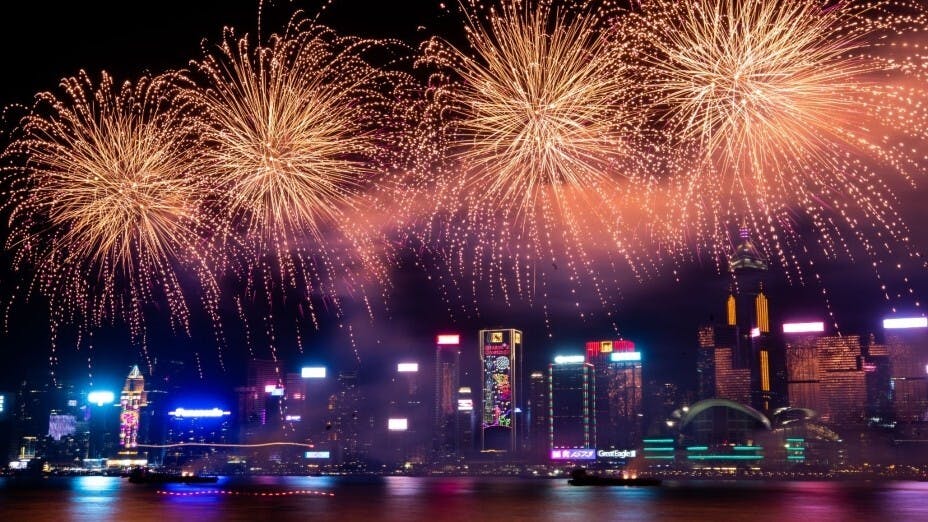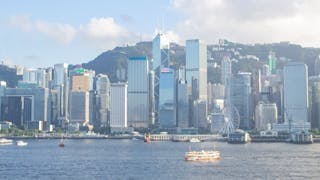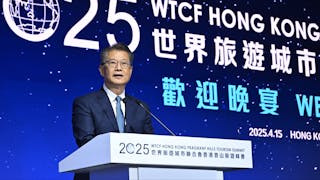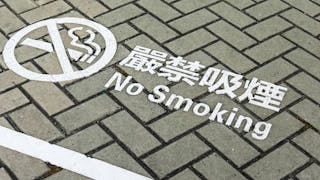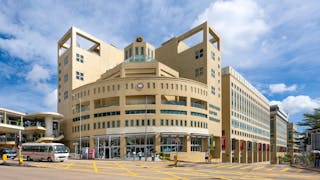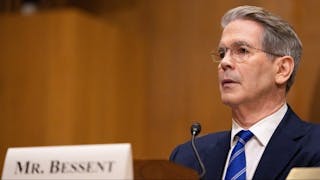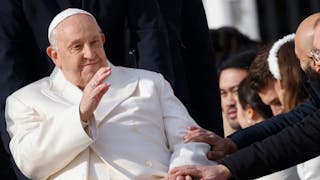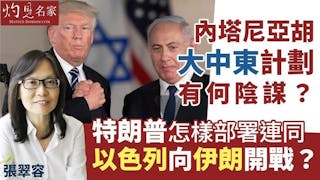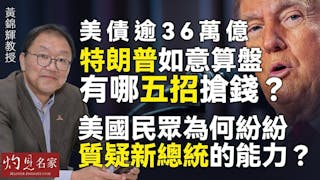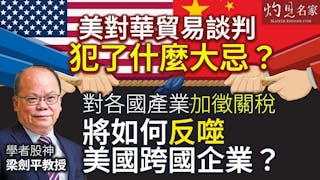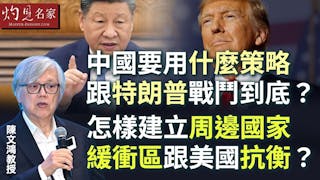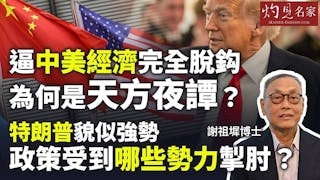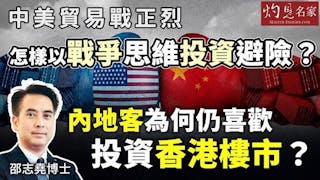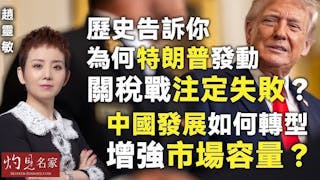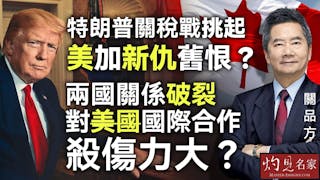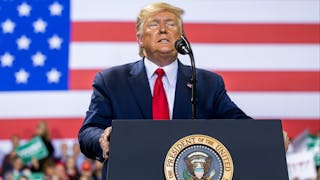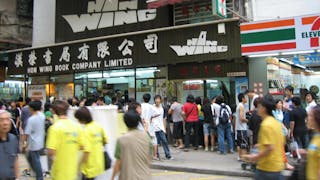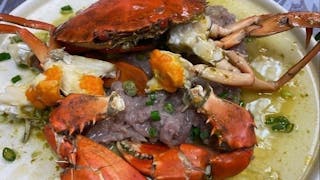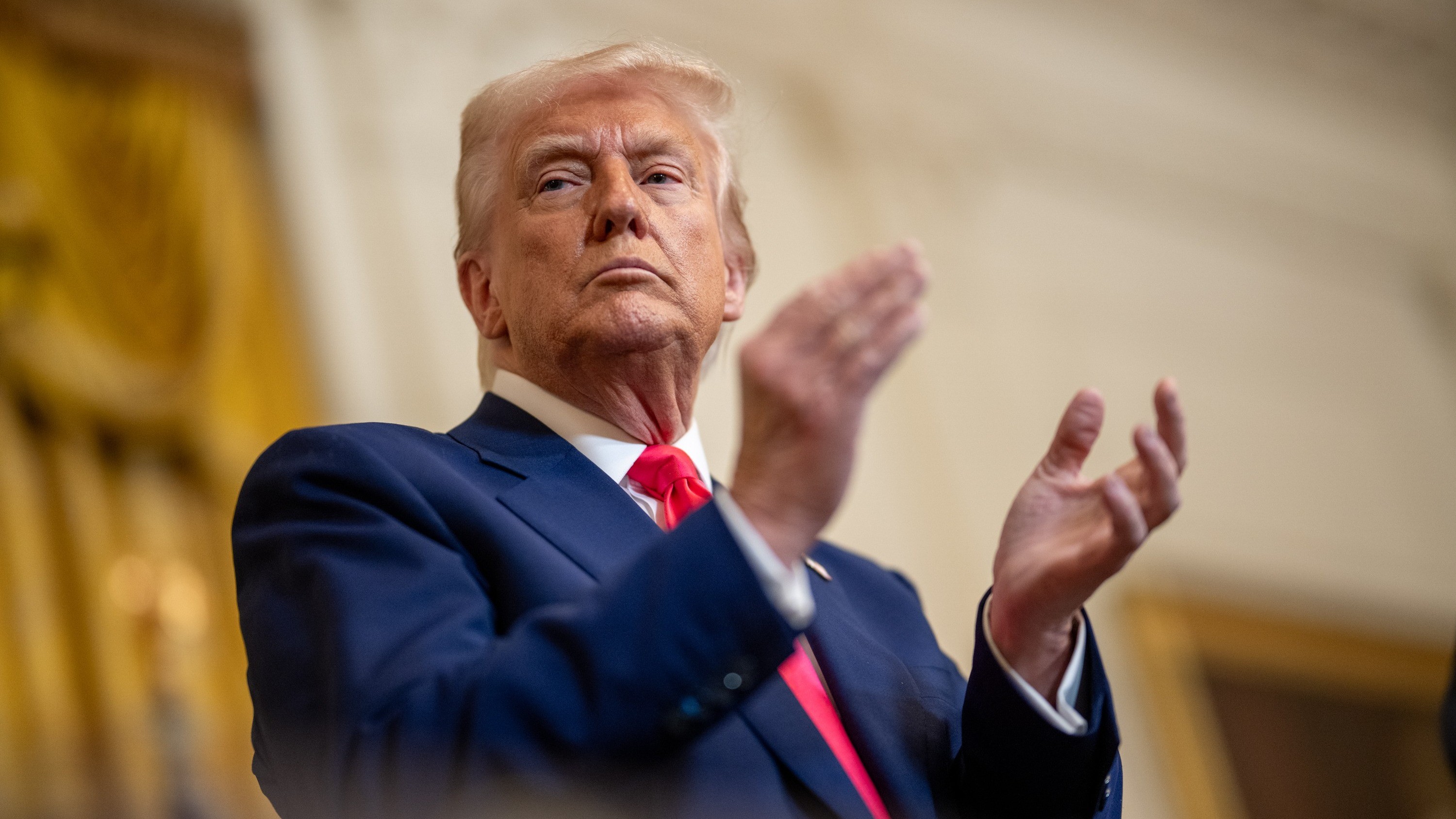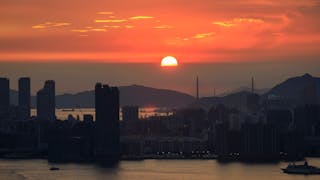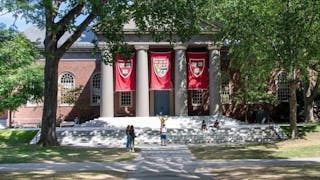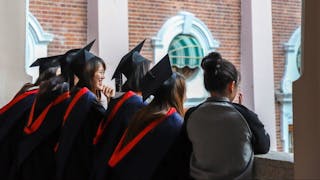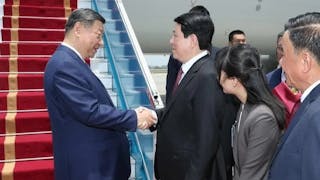2024年龍年,我們將見證香港、澳門兩個特別行政區經濟繁榮、社會公平、政治管治面臨的新挑戰。本文將評估這兩座城市在社會經濟管治方面的挑戰。
首先,雖然澳門預計賭場和博彩業的收入將有所回升,但香港卻受到大量香港人前往深圳和大灣區城市等地區大量消費的影響。自新冠疫情結束以來,澳門人樂見內地遊客穩步回歸,並以積極的方式維持賭場和博彩業的發展。相反,香港經濟卻因本地人大量北上大灣區消費而受到影響,市面更多商舖關門,可見香港經濟繁榮面臨挑戰。
香港最近試圖透過大型體育賽事和旅遊業振興經濟,特別是邁阿密國際球隊與足球傳奇人物美斯訪問香港。然而,美斯因健康原因缺席比賽,不僅對擠滿香港足球場的球迷造成打擊,也引發部分內地網民憤怒,尤其是美斯隨後出現在邁阿密國際在日本的足球友賽中。儘管邁阿密國際最終為美斯缺席香港足球表演賽道歉,主辦方Tatler Asia其後亦宣布向買票入場並預計美斯至少上場幾分鐘的球迷退款50%,但這場大型足球表演賽以公關失敗告終,各方(包括負責贊助賽事的政府當局)都應該汲取慘痛教訓。
這次事件向香港當局提出了一個更嚴重的問題:如果藉大型運動盛事通過旅遊業和本地球迷的消費來重振香港經濟,這樣的大型運動盛事最終能否持續?抑或只是臨時措施,無法重振逐漸衰退的香港經濟。

自1990年代香港製造業逐步向內地遷移以來,香港一直缺乏雄厚的工業基礎。最近,數以萬計的香港人離開香港前往世界其他地區,特別是英國,導致香港失去了富裕的中產階級。加上周末及假期中層和基層人士大量湧入大灣區,香港本地經濟正面臨危機,地產市場出現了樓價下跌,但既得利益者和相關團體卻遊說政府支撐房地產產業。香港現時正陷入兩難:一方面,與大灣區的社會經濟融合,導致中產消費者和基層消費者流出香港,無形中損害了本地第三產業的發展;另一方面,樓價不斷下跌,而既得利益者和相關集團和卻要求政府將樓價維持在高位,認為在香港做生意愈來愈困難,對本地人和外商來說愈來愈沒有吸引力。簡單來說,香港經濟已步入死胡同,問題亟待解決。
香港的解決方案必然與澳門不同;澳門的經濟傳統上是由賭場和博彩業推動的,其文化和歷史古蹟也得到很好的保護,以吸引內地、香港和海外遊客。解決香港經濟困境的辦法,一是讓第三產業在提供優質服務方面變得更好、更具吸引力;二是重振文化和歷史旅遊業,這需要政府和旅遊相關部門具備遠見卓識,更有效地制定和執行政策。
與澳門向來對歷史古蹟和文化遺產進行良好的保護和宣傳不同,香港旅遊當局對香港歷史文化的了解相當薄弱。雖然特首李家超去年發表的《施政報告》,提到在香港建立歷史文化博物館的前景,以強調香港在第二次世界大戰中的歷史作用,但香港許多現有的歷史古蹟仍然沒有得到修復,沒有引起人們的注意,並由旅遊當局使用。香港旅遊部門必須更廣泛、深入地研究香港的歷史和文化遺產,以此作為思考未來如何刺激內地和海外遊客參觀各種歷史文化古蹟的前提。
奇怪的是,香港一些由了解香港歷史文化景點的人士領隊的小型旅行團,一直在帶領外國遊客參觀這些地方。然而,由於旅遊當局對香港歷史缺乏深入了解,香港的歷史文化旅遊業仍然遠比澳門落後,澳門旅遊當局已成功開發了應用程式和有吸引力的網站、詳細的宣傳小冊子覆蓋全市大大小小的歷史文化景點。事實上,港澳及大灣區城市之間可以開發郵輪旅遊,但目前還沒有協調一致的嘗試和具遠見的領導力,可讓郵輪旅遊成為區域旅遊的標誌性活動。
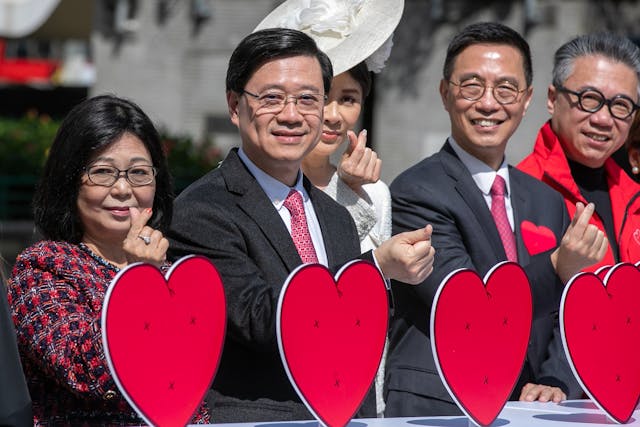
然而,澳門經濟適度多元化進程仍然緩慢,理應透過加強政府宣傳工作、加大動員個人和團體到橫琴考察、加強與珠海橫琴當局在管理「澳門新街坊」項目等方面的聯絡工作來加快這一進程,進一步擴大澳門住宅區,使其成為未來幾年澳門不斷增長的物質和經濟空間的真正動力來源。澳門要在橫琴加快興建證券債券中心、中醫藥中心、創科中心、會展中心。澳門政府透過橫琴粵澳深度合作區加速經濟多元化的一個途徑,是動員所有澳門本地大學更快地在橫琴建設新校區,而這一條件需要立即規劃、迅速制定和有效執行政策。
從維護社會穩定的角度來看,香港和澳門都藉《國家安全法》來維護國家安全,澳門去年修訂《維護國家安全法》、香港2020年中實施《香港國安法》,以及即將通過《基本法》第23條立法來維護國家安全。
社會穩定面臨的挑戰是如何透過向窮人和弱勢社群提供社會福利來加強社會公平。在這方面,澳門的表現比香港好得多,因為澳門提供多種社會福利措施來幫助窮人和有弱勢社群。然而,香港仍存在問題。最近從今年4月推遲至今年8月徵收的垃圾費引起了公眾的批評,尤其是這項收費就像向窮人和弱勢社群徵稅,他們認為這是一種經濟負擔。負責徵收垃圾費的政府部門低估了垃圾收費對社會和基層民眾,特別是仍居住在籠屋和劏房的窮人的綜合影響。
如果社會不平等被一些人視為導致2019年動盪的原因之一,那麼改善社會福利應該成為香港特區政府政策議程的首要議題。然而,香港特區政府卻面臨財政赤字。未來幾年,當公眾期望政府在提供社會福利方面發揮更多干預作用,而政府又試圖避免這種干預方式時,社會穩定面臨的挑戰將愈來愈嚴峻,特別是考慮到世界和東北亞地緣政治局勢不穩定,一方面北韓與南韓、日本和美國的關係日益緊張。另一方面,如果經濟突然惡化,即使中國大陸與台灣之間的關係現在和將來都是可控和和平的,全球和地區經濟出現下滑的任何波動,都可能使香港的社會穩定在未來幾年陷入意想不到的危機。
香港政府的財政困境有解決辦法,包括增加對有錢人和富戶的稅收,如遺產稅、財產轉讓稅和奢侈品稅。然而,對有錢人和富戶徵稅會引起中上階級的抵制和反對。最近,有政黨向政府建議徵收離境稅。然而,這樣的離境稅會影響經常前往大灣區的香港人。一句話,未來幾年香港的税收政治將變得愈來愈敏感和階級化。
在澳門,賭場特許經營權的稅收很高,其中40%進入政府庫房。這種做法在賭場資本主義中是社會主義的,但只要賭場和博彩業繁榮,它就有效。儘管如此,一個依賴賭場收入的政府需要考慮一個應急計劃,特別是澳門橫琴地區的基建發展將需要更多的投資,而澳門的人口老齡化勢將要求政府提供更多的補貼和更多的社會福利。
儘管北京的中央領導人期望提供更多公屋單位能夠更有效地解決民生問題,但提供更多公屋單位仍然是香港政府面臨的一大挑戰。必須進一步減少居民申請公屋的漫長輪候時間,並必須找到更多土地,以更快的速度建造更多公屋單位。香港的房地產市場必須進行更有效的改革,目前,豪宅物業價格昂貴;中檔物業價格則居高不下,一般收入者難以負擔;中低檔住宅需求甚殷,但供應普遍不足。香港的房屋官員和有關當局必須謙虛地思考更有效的解決方案,以解決三類住宅失衡的問題,而不是利用市場決定作為慢慢來或無作為的簡單藉口。
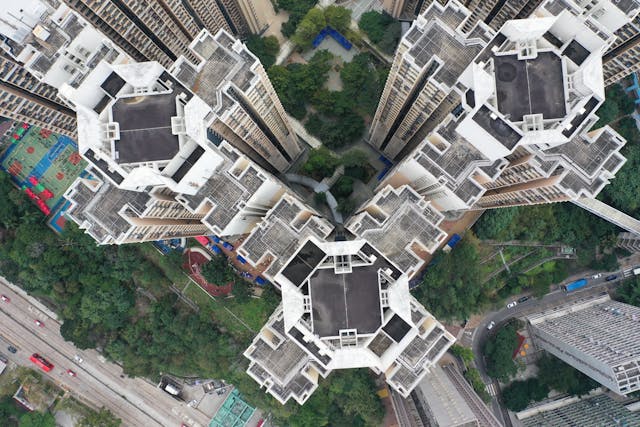
從意識形態上來說,澳門的執政理念遠比香港更社會主義和福利主義。香港在處理社會和經濟問題上已經放棄了相對自由放任或不干預的做法,但可以說,在處理公營房屋供應的問題上,香港特區政府應該更多干預和更加有效、更加大膽和更有遠見;重新思考現行稅收制度;在處理歷史文化旅遊方面更有見地、更有力度。除此之外,香港的社會經濟前景仍樂觀,但充滿挑戰。香港的施政理念只是有選擇地部分干預,但在社會和政治文化要求政府更有效干預的時代,這種理念日益過時。
總的來說,從治理的角度來看,香港和澳門的政治和社會都是穩定的,但任何因地緣政治衝突而導致的經濟下滑,都可能使港澳兩座城市陷入突發的經濟危機。澳門面臨的挑戰是加強管治,包括需要為所有公共工程和建設項目制定更明確的時間表、需要推進與橫琴的一體化計劃、需要動員本地大學在澳門─橫琴合作區開設新校區,以及需要在發生全球和區域經濟衝擊時,制定緊急社會經濟計劃。
然而,香港面臨更多挑戰,因為這個特區陷入了維持地產行業現狀和應對經濟下滑的兩難境地,尤其是中層和基層市民現在紛紛湧向大灣區消費,而不是周末和假日留港消費。因此,香港當局迫切需要思考各種刺激經濟的措施,包括快速發展歷史和文化旅遊,這需要旅遊相關部門更進取的思考和迫切的學習。考慮到長期稅收改革將產生收入再分配效應,並更有力和迅速地提供公屋單位,以解決窮人和弱勢社群的困境。香港和澳門都必須在管治方面做得更好──這是北京早已明言,特別是中共二十大以來提出的一項要求。
The challenges to economic prosperity and socio-political governance of Hong Kong and Macau
The Year of the Dragon in 2024 is opening the door for us to witness new challenges for the economic prosperity, social equity, and political governance of both the Hong Kong and Macau Special Administrative Regions (SARs). This article is going to evaluate the challenges of socio-economic governance in the two cities.
First, while Macau has envisaged a return of revenues in the casino and gaming industry, Hong Kong has been suffering from a vast number of Hongkongers who have been spending a lot in the neighbouring regions of Shenzhen and the Greater Bay Area (GBA). Since the end of Covid-19 and its variants, Macau has seen a steady return of tourists from the mainland, and they have been sustaining the development of the casino and gaming industry in a positive way. On the contrary, Hong Kong’s economy has been suffering from an outpour of local people to the GBA and their spending there while more shops in the local districts have been closed – a testimony to the challenges to the economic prosperity of Hong Kong.
Hong Kong has recently tried to boost its economy through mega-sports event and tourism, notably the Inter Miami’s visit to Hong Kong with its football legend Lionel Messi. Yet, Messi’s absence in the football match on the grounds of his health was a blow to not only the football fans who packed the Hong Kong Football Stadium, but also a factor triggering the anger of some mainland netizens, especially as Messi later appeared in Miami’s football match in Japan. Although Inter Miami eventually apologized for Messi’s absence in the Hong Kong football exhibition match, and even though the organizer Tatler Asia announced an offer of 50 percent refund to football fans who watched the match and expected Messi to play at least for some minutes, the entire mega-sport event ended in a public relations fiasco with bitter lessons to be learnt from all sides, including the government authorities responsible for sponsoring the event.
The saga has raised a more serious question to the Hong Kong authorities. If mega-sport events are used to revive Hong Kong’s economy through tourism and the spending of local fans, will such mega-sports events sustainable eventually? Or are they only temporary measures that cannot revive the gradually declining economy of Hong Kong.
Since the gradual relocation of Hong Kong’s manufacturing industry to the mainland in the 1990s, the Hong Kong SAR has been lacking a strong industrial base. The recent migration of tens of thousands of Hong Kong people out of Hong Kong to other parts of the world, notably UK, has deprived the territory of its wealthy and affluent middle class. Coupled with the outpouring of the members of the existing middle-lower classes to the GBA on the weekends and holidays, the HKSAR is facing a crisis in its local economy. The property market has also witnessed a drop in property prices, but the vested interest groups and individuals are lobbying the government to prop up the property sector. Hong Kong is now stuck in a dilemma: on the one hand, socio-economic integration with the GBA is seeing the outflow of middle-class consumers and lower-class spenders out of Hong Kong, with the unintended consequence of hurting the local tertiary sector’s businesses; on the other hand, the property market’s prices are declining and yet the vested interest groups and individuals are asking the government to maintain property prices at still a high level that doing business in Hong Kong is increasingly difficult and unattractive to local people and foreign businesspeople. In short, the HKSAR economy is stepping into cul-de-sac calling for urgent solutions.
Such solutions are bound to be different from Macau, where the economy has been traditionally propelled by the casino and gaming sector and where its cultural and historical sites have been maintained well to attract mainland, Hong Kong, and overseas tourists. The solutions to Hong Kong’s economic quagmire are, firstly, making the tertiary sector much better and more attractive in delivering quality services and, secondly, reviving cultural and historical tourism, which demands the government and tourism-related authorities to be stronger in visionary leadership more effective in policy formulation and implementation.
Unlike Macau where historical sites and cultural heritage sites have traditionally been well maintained and publicized, curiously the Hong Kong tourism authorities have been quite weak in their historical and cultural understanding of Hong Kong. Although the recent policy address delivered by John Lee mentioned the prospects of building up historical and cultural museums in Hong Kong that will emphasize the city’s historical role in the Second World War, still many existing historical sites in the city have been left unrepaired, unnoticed, and unused by the tourism authorities. The Hong Kong tourism authorities must study the history and cultural heritage of Hong Kong in a far more extensive and intensive way as a precondition for them to ponder how to stimulate mainland and overseas tourists to visit a variety of historical and cultural sites in the future.
Curiously, some small tourist groups in Hong Kong led by individuals knowledgeable about historical and cultural sites in Hong Kong have been taking a leading role in bringing foreign tourists to visit these places. Yet, as the tourism authorities lack in-depth knowledge on the local history of Hong Kong, historical and cultural tourism in the HKSAR remains far more underdeveloped than its counterpart in Macau, where the tourism authorities have successfully created apps, attractive websites, detailed brochures on all the large and small historical-cultural spots in the city. In fact, cruise tourism can and should be forged between Hong Kong and Macau as well as the GBA cities, but so far there has been no coordinated attempt and visionary leadership in making cruise tourism a signature event in regional tourism.
However, Macau’s economic diversification is still slow, a process that can and should be accelerated by better governmental publicity work, stronger mobilization of interest groups and individuals to visit Hengqin, and stronger liaison work with the Zhuhai Hengqin authorities in managing the Macau neighbourhood residence and expanding the Macau residential district further to become a real powerhouse for Macau’s increasing physical and economic space in the coming years. Macau must accelerate the process of building up securities and bond centres in Hengqin alongside with the construction of a Chinese medicine hub, a technological and innovation hub and the convention and exhibition centres. One way for the Macau government to speed up its economic diversification through the Guangdong-Macau In-Depth Cooperation Zone in Hengqin is to mobilize all the local universities in Macau to build up their new campuses in Hengqin more quickly – a condition that demands immediate planning, swift policy formulation and effective policy implementation.
From the perspective of maintaining social stability, both Macau and Hong Kong are consolidating their national security through the amended national security law in Macau, the imposition of the national security law in Hong Kong in mid-2020, and the forthcoming smooth passage of Article 23 of the Basic Law in the HKSAR.
The challenge to social stability is how to enhance social equity through the provision and delivery of social welfare to the poor and the needy. In this aspect, Macau performs much better than Hong Kong as Macau offers a variety of social welfare measures to help the poor and the needy. Hong Kong, however, remains problematic. The recent delay in imposing a charge on the garbage waste from April to August 2024 has attracted public criticisms, notably the charge is like a tax being imposed on the poor and the needy who see it as a financial burden. The governmental authorities responsible for the waste charge collection have underestimated the comprehensive impacts of such charge on the society and the lower classes, especially the poor who are still living in cage homes and sub-divided units.
If social inequity was regarded by some people as one of the causes leading to the 2019 turbulence, then the improvement in social welfare should be high on the policy agenda of the HKSAR government. Yet, the HKSAR government is confronted with budget deficit. In the coming years, when the members of the public are expecting the government to play a more interventionist role in the provision of social welfare, and yet the government is trying to avoid such interventionist approach, the challenge to social stability would be increasingly acute, especially if the economy may suddenly turn worse given the unstable geopolitical situation in the world and in Northeast Asia, where the relations between North Korea on the one hand and South Korea, Japan and the US on the other hand are increasingly tense. Even if the relations between mainland China and Taiwan are and will be both manageable and peaceful, any fluctuations in the global and regional economy toward a downturn would perhaps plunge the social stability of Hong Kong into an unexpected crisis in the coming years.
There are solutions to the financial predicament of the Hong Kong government, including an increase in taxes on the rich and the affluent, like inheritance tax, property transfer tax, and taxes on luxurious products. Yet, taxing the rich and the affluent will give rise to resistance and opposition from the members of upper and middle classes. Recently, a political party has suggested the need for departure tax to the government. Such a departure tax, however, would affect the Hongkongers who travel into the GBA frequently. In short, the politics of taxation will be increasingly sensitive and class-based in the HKSAR in the coming years.
In Macau, taxes are high on the casino concessionaries, with 40 percent of them going to the treasuries of the government. This approach is socialist amid casino capitalism, but it is effective so long as the casino and gaming industry is prosperous. Still, a government depending on its revenues on casino revenues needs to consider a contingency plan, especially as the infrastructure development in Macau-Hengqin region will demand more investment and as the aging population of Macau will demand more subsidies and more social welfare from the government.
The provision of more public housing units remains a big challenge to the Hong Kong government, even though the central authorities and leaders in Beijing expect it to be more effective in addressing the people’s livelihood. The long waiting time for residents who apply for public housing units must be reduced further and more land must be found to build up more units for them at a faster pace. The housing markets of Hong Kong have to be reformed in a more effective way. At present, the upper-class properties are highly expensive; the middle-tiered properties are stuck with still high prices that cannot be easily affordable to ordinary income-earners; the lower-class housing units are generally insufficient in supply although their demands are huge. The housing officials and bureaucrats of Hong Kong must humbly ponder more effective solutions to address the imbalances in the three classes of properties, instead of utilizing the market as an easy justification for either incrementalism or inaction.
Ideologically speaking, the ruling philosophy of Macau is far more socialist and welfarist than that of Hong Kong. The HKSAR has already abandoned its relatively laissez-faire or non-interventionist approach in dealing with the society and economy, but arguably it should be more interventionist and more effective in dealing with the supply and provision of public housing units, much bolder and visionary in reconsidering the current tax system, and more insightful and forceful in handling historical and cultural tourism. Otherwise, the socio-economic outlook of the HKSAR remains optimistic but challenging. Hong Kong is only partially and selectively interventionist in its governing philosophy, and yet such philosophy is increasingly outdated in an era of social and political culture that demands more effective governmental intervention.
In conclusion, from the perspective of governance, both Macau and Hong Kong are and will be politically and socially stable, but any economic downturn due to geopolitical conflict may plunge the two cities into a sudden economic crisis. The challenge of Macau is to enhance its governance, including the need for much clearer timeline in all public work and construction projects, the necessity of pushing forward the integration plan with Hengqin, the need to mobilize local universities to open their new campuses in the Macau-Hengqin region, and the necessity of devising a contingency socio-economic plan in case of any global and regional economic shock.
Hong Kong, however, encounters more challenges as it is stuck in a dilemma of maintaining the status quo in the property sector and dealing with a declining economy, especially as the middle-lower classes are now flocking to spend in the GBA rather than staying in the territory during the weekends and holidays. As such, it is quite urgent for the Hong Kong authorities to ponder a variety of measures to stimulate the economy, including the rapid development of historical and cultural tourism that demands a more radical thinking and urgent learning of the tourism-related authorities, the consideration of long-term tax reforms that would have income redistributive effects, and the more forceful supply and swifter provision of public housing units to deal with the plight of the poor and the needy. Both Macau and Hong Kong must do a better job in their governance – a demand that has been made known by the ruling authorities in Beijing especially since the 20th Party Congress.
原刊於澳門新聞通訊社(MNA)網站,本社獲作者授權轉載。原文網址:http://tinyurl.com/c9hyaj59



